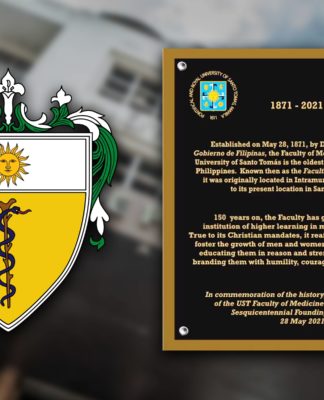 MY MOTHER and I carry out our relations largely through SMS. I get up late for afternoon classes when she has already driven off to work. We barely see each other so practically all the errands she makes me do come in text messages and settled by just a “K” reply from me.
MY MOTHER and I carry out our relations largely through SMS. I get up late for afternoon classes when she has already driven off to work. We barely see each other so practically all the errands she makes me do come in text messages and settled by just a “K” reply from me.
But on weekends, we still seem not to see each other, for I am either drowned in Facebook or catching up on my American TV series in YouTube.
I might have been born in 1989, but I believe that I belong to the “iGeneration,” as dubbed by California State University’s Larry Rosen.
Rosen, who receives the same “K”s from his 19-year-old daughter, claims that the human race is in “the midst of four distinct generations: Baby Boomers (born 1946 to ‘64), Generation X (1965 to ‘79), Net Generation (1980 to ‘89) and the new iGeneration (born in the 1990s and beyond).”
He said the “i” represents gadgets such as iPods and Wii, and “reflects the ‘individualized’ nature of their media.”
“If you have a teenager … you must learn how to text, or you two will never “connect.” To this generation, it is all about connection, but those connections are, for the most part, electronic,” the American psychologist, who authored Me, Myspace and I: Parenting the Net Generation, wrote in CNN.com.
In 2008, Acision, which specializes in messaging and charging systems, said that the Philippines delivered 1.39 billion text messages, resulting in heavy SMS traffic in Asia Pacific, during holidays.
Remember how text messaging helped the ouster of former president Joseph Estrada in 2001? It wasn’t even holiday then.
Rosen goes on and rants: Communication today is pretty much anything like “Skype-ing,” “IM-ing,” “Facebook-ing,” and texting,“ except live or on the phone.”
If the older generations consider technology as a tool, Rosen said ours see it as “life.”
We should plea guilty to this. We sleep with cell phones, wake up with laptops, dress with digital SLRs and consider Twitter as household pet. Even our crops are make-believe computer graphics now.
And still, Rosen has all the praises for his daughter’s peers.
“Yet those pesky multitasking kids are the smartest generation ever…they are really a highly social generation (albeit with much of the socializing done online); they value family, and revere friendship (some ‘virtual’).”
Actually, I sometimes doubt if social-networking sites are basically “social.” Nowadays, Facebook and the likes, at least I believe, are more like feeding the user’s ego than widening his social circle.
Rosen hit the jackpot with this: It is their world. Watch out for the young ones who are already surfing the Internet at two.
We, who don’t blink away from the computer unless nature calls; we, who own and visit virtual farms, restaurants and pets all at the same time, will be the next roster of presidents, bankers, soldiers, and even movie stars.
God knows how much college students owe their grades to the Internet, but just imagine if the world is to be ruled by leaders hunchbacked at their computer screens. “Life” by then could mean “online.”
This generation is so immersed in the egocentric electronic media and should be found guilty of narcissism. We shall take advantage of this technology we’re growing old with and not molest its capacities. Let’s keep ourselves from being bratty kids who—like what my professor said in his Facebook wall—think the world owes them something. Prove Rosen and the rest of his generation that their expectations from the pesky multitasking kids are possible to meet.















